Trudy J. Morgan-Cole's Blog, page 18
July 23, 2023
The Colour of Magic, by Terry Pratchett

For literal years I have had people telling me “You love ____; you’d really love Terry Pratchett.” The blank could be filled with a lot of different things, but suffice it to say that a lot of people who share my taste in fantasy, comedy, absurdity, etc, are also rabid Pratchett fans and have assured me I would like his books too.
My next question, since Pratchett wrote a gazillion of the Discworld novels that aren’t chronological from one to the next, is always, “OK, where should I start?” And that’s when I begin getting long, convoluted explanations about how, well, there’s no first book, there are a lot of places to enter the series, it all depends if you’re more interested in X or Y, etc ….
It’s honestly all been a bit overwhelming.
A former student who was in the “you love all these things so you’d probably also love Pratchett” category loaned me her copy of Hogfather a few Christmas breaks ago, and while I enjoyed reading it, I didn’t feel fully drawn into Pratchett’s world or eager to read more. So I decided to try again with The Colour of Magic, which is technically the “first” Discworld book even though is officially no first Discworld book, so I could at least get properly introduced to the world.
This went a bit better, and I did enjoy The Colour of Magic and found it funny. I liked the hapless wizard Rincewind, and apparently he is in other books too, so I’d probably enjoy those. Pratchett’s humour reminds me a lot of Douglas Adams’s humour – that same sort of self-aware kind of absurdity that made me laugh so hard when I first picked up the Hitchhiker’s Guide to the Galaxy when I was nineteen. This reminded me of that, though not quite as laugh-out-loud funny — but it might be that I’m not nineteen anymore and that type of humour is less of a surprise than it was then? Anyway, I do have plans to read at least one other Discworld book, maybe more, so watch this space to see if I get fully drawn in to Pratchett’s world.
The Raw Light of Morning, by Shelly Kawaja
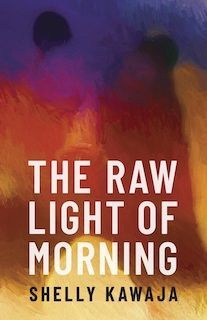
This 2022 Winterset Award winning debut novel starts with a shocking act of violence as fourteen-year-old Laurel instinctively responds to the horrific abuse her mother is subjected to by a boyfriend. Everything else that happens throughout Laurel’s teenage years spins out from this one moment, as she variously tries to process, to move on from, to forget about, to distance herself from, the trauma that threatens to define her whole world.
The details of poverty, of abuse, of trauma, and of 1990s adolescence in small-town Newfoundland, all feel vivid and real. The story comes to a head in Laurel’s first year of university, where she dreams that getting a college education will allow her to finally put the past behind her. Not surprisingly, it turns out not to be that easy to re-create a whole new life.
Laurel is an appealing and frustrating character that I wanted to both hug and shake some sense into — just like any real teenager, but especially one who’s dealing with events much bigger and more painful than any teenager should have to cope with. I read this book quickly and found it completely engrossing.
June 18, 2023
The White Girl, by Tony Birch
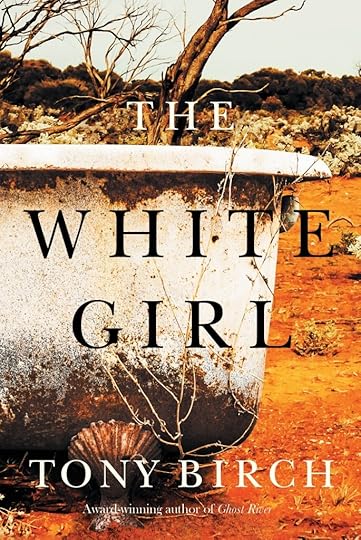
This is a novel I only recently found out about because it was a selection in an online book club I’m part of, through which I have discovered some interesting books I’d not have heard of others. The White Girl is by an Australian Aboriginal author and is about an Aboriginal woman named Odette and her mixed-race, white-passing granddaughter Sissy. Odette knows that because of the restrictions placed upon Aboriginal people in their community, she could lose custody of Sissy, and there is a police officer in town who seems bent on making sure that happens, as well as a young white man who has begun tormenting and pursuing the twelve-year-old girl. Odette is determined to take whatever steps necessary to save Sissy and keep the girl with her — but it’s possible that by doing so she may be leading them into even greater danger.
The book was set in the 1960s and it was interesting to compare the experiences of Odette and other Aboriginal people in her community, with what I know of the experiences of Indigenous people here in Canada during that same time period. Though the details differ, the harsh settler-colonial regime was essential the same (and in many ways still is, though its mechanisms have changed) with the goals of either elimination or assimilation for the Indigenous population. Odette’s and Sissy’s story is heartbreaking but ultimately hopeful, and I learned a lot from reading it.
Hollow Bamboo, by William Ping
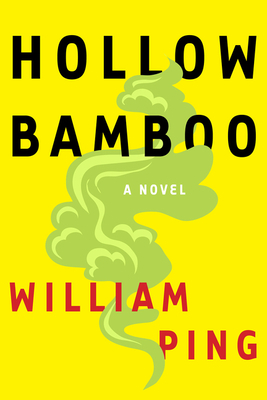
There’s been a lot of local book buzz about William Ping’s debut novel, in which he explores the experience of Chinese immigrants to Newfoundland in the early 20th century through the story of his grandfather, known in Newfoundland as William Seto Ping, an early business owner and pillar of the Chinese community. I’m glad I picked up a copy because this was a fascinating reading experience.
The novel doesn’t start off as a traditional piece of historical fiction; it begins in the present day (well, January 2020) with a first-person narrator William Ping whom the author admits in his afterward is a somewhat caricatured version of himself. This modern-day William Ping is one-quarter Chinese, white-passing, and knows almost nothing about his grandfather or his Chinese heritage. These gaps in his knowledge are heightened when he begins dating a Chinese-Canadian girl and meets her family. While navigating an awkward family dinner, William passes out in a restaurant bathroom and begins to have a series of visions that bear more than a passing resemblance to the spirits that visit Scrooge on Christmas Eve.
The enigmatic creature known as Mo shows William scenes from his grandfather’s early life in China, but soon both Mo and William step aside to allow us to be fully immersed in the story of the first William Ping, who somewhat unwillingly comes to Newfoundland to work for an uncle who, he has been told, is already running a laundry there. The plan is that Ping will take his uncle’s place running the laundry for a year to allow his uncle a visit home, then return to his wife, child, and job in China. But of course it’s not so simple, and this is where the novel really picked up and became fascinating to me.
We are plunged into the world of the first Chinese men to immigrate to Newfoundland — all men, because Chinese women were not allowed to come, and Chinese men had to pay a “head tax” for the privilege of coming to the far eastern end of North America to do backbreaking labour and receive often-vicious racist abuse from the locals. The story of the elder William Seto Ping is full of twists and turns, comedy and tragedy — much of it based on real historical events. By the time Ping the younger emerges from this time-travel journey to the past, he is a different man in a different world.
This is a piece of local history I knew little about; entering the world of these early Chinese immigrants was startling, unforgettable, and sometimes heartbreaking. An excellent read.
Horse, by Geraldine Brooks
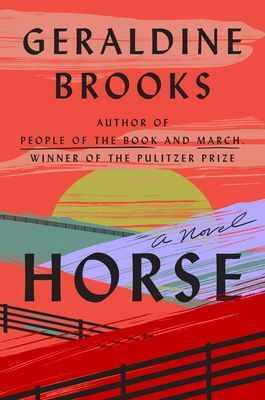
I can always rely on Geraldine Brooks to deliver an engaging, well-researched story that delves into a fascinating piece of history and makes it feel relevant to the present day. From King David to Papa March to the plague victims of Eyam (and many others!), Brooks has shown a genius for lifting a story from the past, often a story we think we already know, and casting it in a new light. Other times, she takes a story we don’t know — a fascinating historical footnote — and builds a rich and compelling world around it.
Such is the case with Horse, a novel inspired by a real nineteenth-century American racehorse and Brooks’ fictionalized version of the enslaved Black man who trains and cares for the horse. Along the way we get a deep dive into the world of thoroughbred breeding and racing in that era, as well as a contemporary story with two scholars from very different personal and academic backgrounds who together begin to piece together the story of this once-famous, almost-forgotten horse.
This is a story about racing, and also about race and racism: much of the story is set before and during the US Civil War, when the difference between the lives of rich white men who own racehorses, and enslaved Black men who are also owned by the rich men, is stark. But the modern-day story of researchers Theo and Jess also deal with racism — lightly at first, until a sudden twist near the end of the story reminds the reader that as far as we have all travelled since the 1860s, it’s still not far enough.
I found this a compelling novel that was hard to put down.
Howl’s Moving Castle, by Diana Wynne Jones
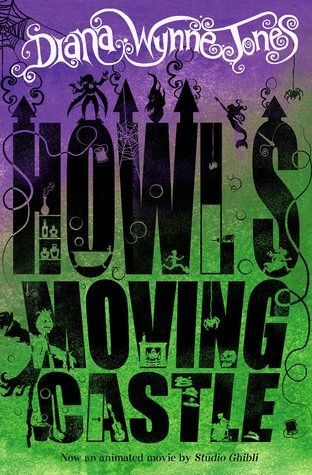
Howl’s Moving Castle is in the category of “books I’ve been hearing about for years but somehow never gotten around to reading.” It’s a classic YA fantasy set in a magical land where a mysterious wizard named Howl has, well, a castle that moves around from place to place. The main character is a young woman named Sophie who gets on the bad side of a witch and is cursed to instantly become a very old woman. Looking for help in breaking the curse, Sophie ends up at Wizard Howl’s castle and becomes ensnared in the web of bizarre characters and situations in the castle, of which the most bizarre is perhaps Howl himself.
I think the animated movie made from this book is possibly more famous even than the book is (that is, there are probably more fantasy fans who have seen and loved the movie than have read and loved the book). Not having seen the movie, I can say that I found the book engaging and enjoyable, though I felt at the end like too many plot threads were coming together and being resolved too quickly and I couldn’t quite keep track of everything. But I did enjoy the experience of reading it and really liked the characters.
June 17, 2023
It Ends With Us, by Colleen Hoover
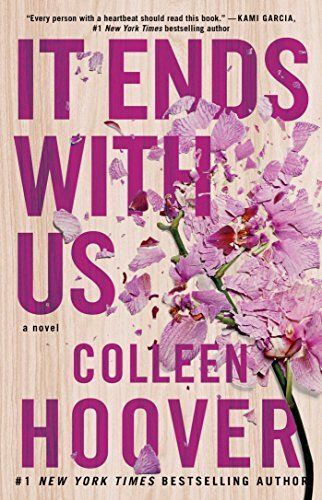
This book is a massive bestseller and I’ve been seeing it all over the place. It’s essentially a romance — but the kind of romance novel that hits the mainstream shelves rather than being relegated to the category romance section of the bookstore. In that sense it’s in a similar category to Emily Henry’s Book Lovers which I enjoyed so much earlier this year, but it did not have the same appeal for me at all.
At the heart of It Ends With Us, is a love triangle: Lily, a young woman whose personality left so little impact on me that I’m finding it hard to sum her up briefly, meets Ryle, a rich, handsome jerk who walks right off the pages of formula romance. Lily falls hard for Ryle even as he insists he doesn’t want a relationship, but at the same time she’s haunted by memories of her first love Atlas. When Atlas (yes, his name is Atlas) reappears in her life, she finds herself torn.
I’ll admit this summary doesn’t really do the book justice, because there’s something much more important than a love triangle going on here: there’s a very raw and real-feeling exploration of intimate partner violence and why the answer to “why doesn’t she just leave” is never as easy as it looks. That part of the novel was very well done and I respected how Colleen Hoover made that situation nuanced, complicated, and believable.
However, both the actual romances at the heart of the story felt unbelievable to me, and Lily was a bit of a black hole at the centre of her own story in terms of being a memorable character, so the love story plot felt kind of flat. I can see why this book has been a big bestseller but it didn’t make me want to read another Colleen Hoover book, not even the sequel to this one (confusingly titled It Starts With Us).
Deacon King Kong, by James McBride
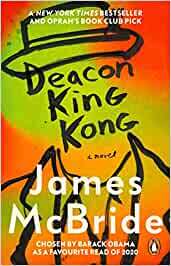
This is a hard book for me to sum up my thoughts on, because I know it’s objectively a good, maybe even a great book — the writing is beautiful, it’s a brilliant evocation of time and place — and yet I found it really, really hard to get into.
It’s set in 1969, in a Brooklyn housing project where an elderly, somewhat confused old man (the titular Deacon, although he’s usually called Sportcoat and even that’s not his real name) shoots a young drug dealer. With a rich cast of vividly described characters all reacting to and in different ways affected by this shocking event, the story unspools from there, not in anything like a straightforward narrative but in something more like a colourful human tapestry.
This sounds great, and I think it is, but it somehow took more than half the book for me to really get dug into the story, keep straight who was who, and find any through-line that I could follow to make me interested in how the story would end. I’m pretty sure my reading experience was affected in a major way by the fact that this was a library book and that by the time I started to really care about the characters (probably two-thirds of the way through the book) I was a day away from having to return it. (Library e-books, unlike library paper books, can’t simply be kept late — they will disappear off your device at midnight on the appointed day). So I rushed reading the end of the story, the part where I’d finally gotten interested in the characters, and this probably impacted my enjoyment of the story. Conclusion: very well written book (I picked it up as it was recommended by someone whose taste in books I always trust); just not the right book or the right time to engage my attention.
June 16, 2023
Love Lives Here: A Story of Thriving in a Transgender Family, by Amanda Jette Knox
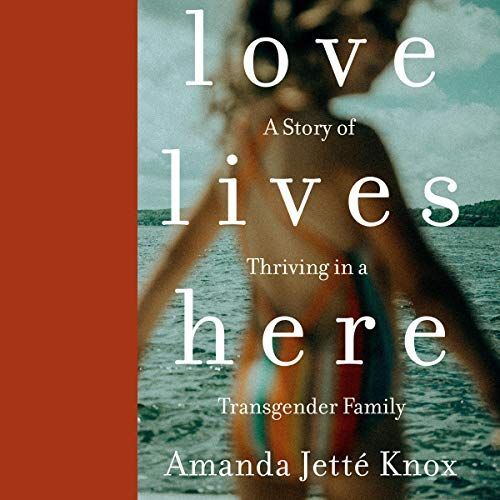
I’ve followed Amanda Jette Knox on Twitter for awhile, learned a lot, but somehow never gotten around to reading this book until I listened to the audiobook on a recent trip. It’s the story – more familiar now than it was a few years ago when this happened for the Knox family – of a family in which one of what they then thought of as their three sons, approaching puberty, disclosed to the parents that they felt more like a girl than a boy. Amanda supports this child through transition, learning a lot along the way about the experiences of trans kids, the strength of family bonds, and the level of transphobia directed at a family like theirs. Nothing, however, prepares the family for the moment when Amanda’s partner, known to everyone at that point as Amanda’s husband, also comes out as a trans woman. From being the parent of a transgender child to being the spouse of a transgender person was a step Amanda never expected to take, but the Knox family navigates these uncharted waters with openness, generosity, and love.
I’ve seen some of the hate Amanda Knox has attracted on social media just for writing honestly about a family that doesn’t fit within traditional gender expectations. It’s mind-boggling and sad, amid what some people like to frame as “culture wars,” to realize how angry some folks can get just at the idea that you love and support your loved ones no matter what. Amanda’s story is raw, honest, and painful at times; as a reader I felt immersed in the family’s journey and touched by how they supported one another.
This book came out in 2019, and Knox has another book coming out later this year, One Sunny Afternoon, about trauma and healing. Lots has happened to this family since Love Lives Here was published; for one thing, both Amanda and Alex, the child who originally came out as transgender, now identify as non-binary, reminding us that identity and gender are complicated, and not always as fixed or simple as we might imagine them to be.
May 23, 2023
The Company of Heaven, by Catherine Fox

Longtime readers of this blog will know I am a huge fan of Catherine Fox’s Lindchester Chronicles, having discovered the first two books — Acts and Omissions and Unseen Things Above — back in 2015. The next two, Realms of Glory and Tales from Lindford, I read in serialized form on Fox’s blog, chronicling the turbulent events of 2016 and 2020 respectively. (The first two books were initially serialized in the same way, but were already out in book form before I discovered them). The blog format provided a fascinating way to anchor novels in a specific time so the reader saw the impact of real-world events like Brexit or the Covid-19 pandemic unfolding week-by-week or month-by-month in the lives of ordinary people.
The “ordinary people” at the centre of this book series are the clergy and people of an English cathedral town called Lindchester, and the nearby town of Lindford. The first three books centred mostly around the cathedral, and most of the characters were either clergy or otherwise directly connected with the cathedral; these latest two take us further out into the community. While there are still several clergy characters (old friends from the earlier books), there are lay people as well, along with a few agnostics and atheists who are, in this novel’s warm and inclusive gaze, still recipients of and channels for grace, even though they might not use the same language for that grace as the more religious characters do.
“Grace” is, I think, the overarching theme of this novel, and of the whole series. If you ask “what’s this book about?” … well, it’s about a lot of things. It’s about a community living through the difficult months of 2021-22, when Covid is supposed to be “over” but refuses to go away. It’s about two gay dads sharing a home with the mother of their new baby. It’s about a cranky, highly relatable middle-aged university prof confronting the secrets hidden in her family history. It’s about a divorced couple raising two teenage girls while slowly finding their way back to each other. It’s about a solitary man creating home and shelter for a young relative going through a difficult time. And those are just a handful of the many plotlines woven through the novel. Through it all, it’s about grace — the grace of God filtered through ordinary people muddling through, trying to help each other, sometimes screwing up, doing their best.
This book probably works as a stand-alone — most of the characters are ones we met in the earlier books, but there are some new ones, including the wonderful Ellis and Paver whose story threads the other plot lines together. We’re given enough background on the returning characters to make sense, so you could jump into this one without having read any of the previous books. However (and this is not to discourage you from picking up The Company of Heaven if you haven’t read the others!) I think there’s so much more richness here if you have read the series, and get to see how characters like Freddie, Jane, Martin, and others, have grown over the years as we’ve gotten to know them.
There’s much more I could say about this book; I feel like I’m only scratching the surface. If you click the links to the titles of the four earlier books above you can read my reviews of each of them, where I touch on many of the other things I love about this series, including my reflections on the Anglican in-jokes that fly right over my head because I’m not Anglican (that’s a plus, not a minus — I love a book that immerses me in a subculture even if I don’t catch every reference!). Because the publishers kindly sent me a free copy in return for an honest review and are including this post in the “blog tour” around the novel’s release, I’ll try to restrain my ramblings a little and just say: this is a wonderful book, the latest (hopefully not last?) in a wonderful series.
As well as the serialized form of initial publication and the Trollope-like cathedral setting, there’s another way in which these novels, so steeped in twenty-first century issues and concerns, call back to nineteenth-century English fiction. They have a very direct, self-aware narrative voice, a narrator who addresses the reader directly, who calls attention to the fact that the story is a construct and she is making choices — and in doing so, invites us to participate in that story.
All my jewels, precious jewels, my loved and my own, Fox’s author/narrator reflects. Sometimes I can’t believe I made these characters up. They all come out of my head, and now they live in yours, as if they’re real people, and we care about what happens to them.
How true! In September 2022, when Catherine Fox had finished posting the online chapters of this novel (the characters left, as it were, in suspended animation), I watched from Canada as our news endlessly covered the Queen’s death, and those strange and unforgettable images of the endless, hours-long queue for mourners to file past the coffin. I caught myself thinking, “Is anyone in Lindchester enough of a monarchist to come down to London and stand in this line-up? Would Freddie May join the queue and lead those around him in an impromptu sing-along? Would Leah’s parents let her go to London to hold up a protest sign? Is Jane shaking her head and rolling her eyes at the whole spectacle?”
As if they’re real people, indeed.



